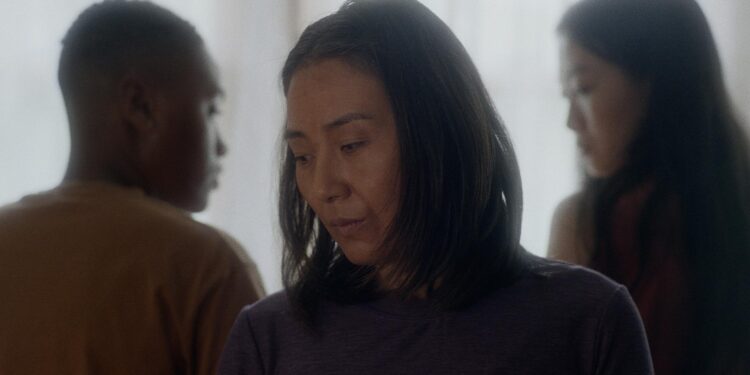Amie Song’s Three begins with a prayer and ends with a reading from the Bible. One is done in the dark, alone, while the other is spoken to in front of a small group of people. Both instances are thankful and filled with love, but there is a great difference between them. Song’s film is gentle and quietly moving and even though the dialogue is spare, the impact is huge.
Lin has just moved from China and is living with her daughter, Jane, and her partner, Briana, until she feels more settled. Lin has found friendship and kindness through her church, and some members of the congregation have gathered at Jane and Briana’s home to make dumplings together. The group does not know the relationship between Jane and Briana, and Lin seems terrified that this will be revealed. There is also a sense of growing tension as Briana tiptoes around her own home in order to not throw anything off balance before she is welcomed to sit with the group.
Song keeps the focus on the three women affected by this seemingly normal visit and the chatter is mostly kept off screen as everyone works together. Lin keeps her gaze down and her friends talk around her and the sound of the rolling pin against the boards on the table seem louder than it really is because of Lin’s nervousness. A lot is said with stolen glances or interrupted stares. Not only is Lin uncomfortable in a place that is unknown to her, but seeing her faith collide with the reality of her daughter’s life could lead to more isolation.
Three is captivating with how it makes the simplest moments feel like they could bring on the end of the world. If you can drown out the noise in your ears, you can discover what’s truest in your heart.






![‘The Four Seasons’ Scene-Stealer Marco Calvani On His Return to Acting [VIDEO]](https://thecontending.com/wp-content/uploads/2025/04/4season-120x86.jpg)



